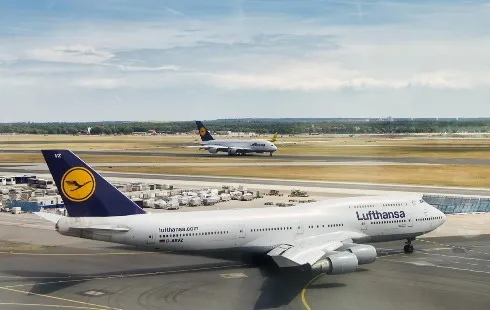
Trump's Tariff War: China Urges Immediate Repeal of Tariffs Amid Countermeasures
Section: News
The US toy industry is bracing for significant price increases due to newly imposed tariffs on imports from China. As the Toy Association reported, nearly 80% of the toys sold in the United States are sourced from China, making the sector particularly vulnerable to these economic changes.
During a recent trade show in New York, industry stakeholders gathered not only to discuss product launches for the upcoming holiday season but also to address the implications of President Trump's directive to double tariffs on Chinese imports. With the anticipated increase in prices, retailers are preparing for a potential surge in costs ranging from 15% to 20% on various toys, including games, dolls, and vehicles, as the new school year approaches.
Greg Ahearn, president of the Toy Association, highlighted that consumer willingness to spend typically hovers between $5 and $20 per item, leaving little room for companies to absorb these rising costs without passing them along to buyers. This situation poses a significant challenge, particularly for smaller businesses that constitute approximately 96% of the American toy market.
Adding to the complexity, the implementation of these tariffs remains uncertain. The president has previously introduced high tariffs on imports from Canada and Mexico, only to later retract or postpone some of these measures. Jay Foreman, CEO of Basic Fun based in Boca Raton, Florida, expressed concern about the unpredictable nature of the current trade environment, which complicates planning for businesses reliant on overseas production.
Foreman noted that most of Basic Fun's products are manufactured in China, and as a result of the tariff increase from 10% to 20%, they will need to raise prices for items such as a Tonka dump truck, which currently retails for $29.99. This will likely mean an additional cost of around $10 for consumers come fall.
Steve Rad, from Abacus Brands in Austin, Texas, is exploring options to relocate production to countries like Cambodia or Vietnam, though he acknowledges that the manufacturing capabilities in those regions do not match those found in China. He also indicated that he has identified a Texas-based factory capable of producing one of his products, a learning game called Pixicade, without incurring extra expenses.
Despite the challenges posed by increased tariffs, Rad is also considering cost-saving measures, including simplifying product features. Meanwhile, Foreman plans to enhance product presentations to justify price hikes, potentially altering packaging materials or colors to keep items appealing to consumers.
Richard Derr, a franchise operator of the Learning Express chain, expressed confidence that customers would not closely compare prices to the previous year, given that about two-thirds of their inventory consists of new products. He believes the market's fast-paced nature allows for adaptability in consumer preferences.

Section: News

Section: News

Section: Health

Section: News

Section: News

Section: Travel

Section: News

Section: News

Section: Politics

Section: Arts

Health Insurance in Germany is compulsory and sometimes complicated, not to mention expensive. As an expat, you are required to navigate this landscape within weeks of arriving, so check our FAQ on PKV. For our guide on resources and access to agents who can give you a competitive quote, try our PKV Cost comparison tool.

Germany is famous for its medical expertise and extensive number of hospitals and clinics. See this comprehensive directory of hospitals and clinics across the country, complete with links to their websites, addresses, contact info, and specializations/services.

Join us for a captivating organ concert featuring Giacomo Gabusi from Bologna. Experience an evening of classical music with works by Wagner, Bossi, and Messiaen, among others. This event is part of the Pasinger Orgeltage series, promising a delightful musical experience. Admission is free, but...
No comments yet. Be the first to comment!